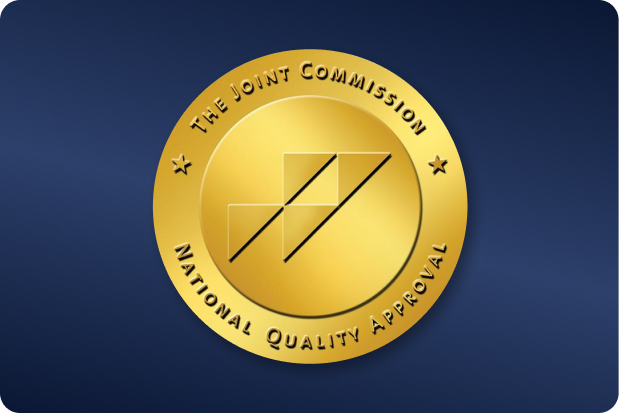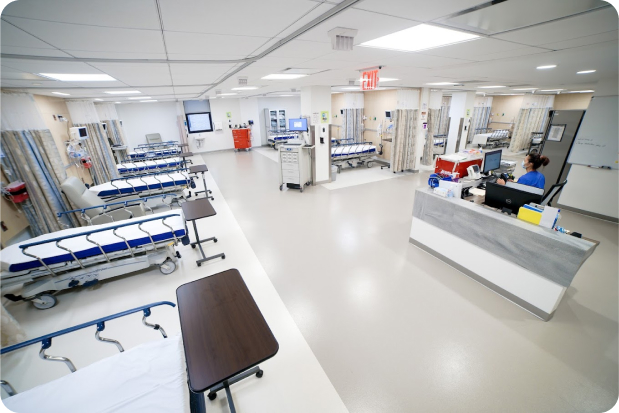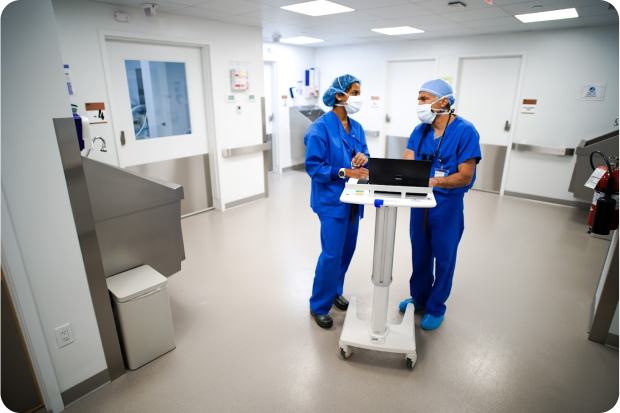 OUR LOCATIONS
Same-day Appointments Book OnlineCall to book 201.523.9590
OUR LOCATIONS
Same-day Appointments Book OnlineCall to book 201.523.9590
 OUR LOCATIONS
Same-day Appointments Book OnlineCall to book 201.523.9590
OUR LOCATIONS
Same-day Appointments Book OnlineCall to book 201.523.9590
Table of contents
Thoracic radiculopathy is a painful pinched nerve in your upper back. While not a common condition, it can cause back pain, as well as numbness and weakness in your arms, hands and fingers. You need thoracic radiculopathy treatments to address the issue and deal with your pain, which can become severe if left untreated. Seek out medical attention from a spine specialist like Dr. Amr Hosny at the Spine & Rehab Group. With eight locations in New York City and northern New Jersey, there’s an office near you. Call today for a consultation.
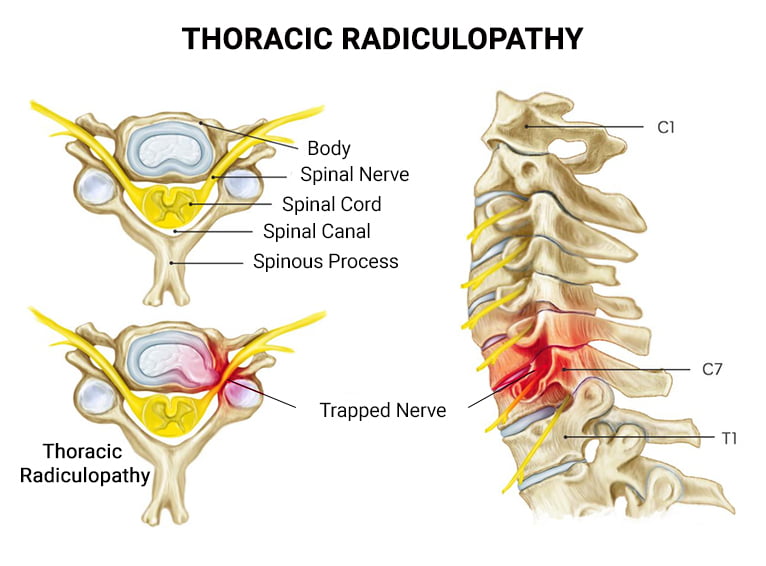
Thoracic radiculopathy describes a condition in which a nerve root becomes compressed or inflamed in your spine’s thoracic or upper back area. Also known as a pinched nerve, it’s a painful spinal disorder that doctors may overlook because it’s the least common area for radiculopathy, which usually hits your cervical or lumbar spine.
The condition results in back pain and other symptoms that appear in the area of the compressed spinal nerve. Pain and numbness may also radiate down your arms to your hands and fingers. You may feel numbness that wraps around to the front of your body too. It can manifest itself as either abdominal or upper back pain.
If this type of back pain sounds familiar, visit Dr. Amr Hosny and the spine specialists at the Spine & Rehab Group. They can diagnose the source of your pain and provide the treatment you need. With eight convenient locations in New York City and northern New Jersey, they have an office close to you.
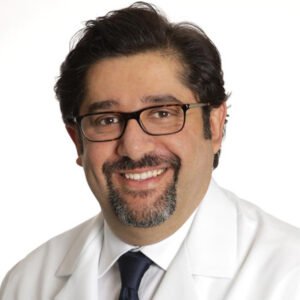 Amr Hosny, MD, MBA, FASA
Book Now
Amr Hosny, MD, MBA, FASA
Book Now
 David Chu, MD, FAAPMR
Book Now
David Chu, MD, FAAPMR
Book Now
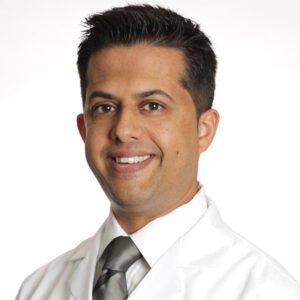 Vivek Mehta, MD, FAAPMR
Book Now
Vivek Mehta, MD, FAAPMR
Book Now
 Deepali Gupta, MD, DABA, DABPM
Book Now
Deepali Gupta, MD, DABA, DABPM
Book Now


Thoracic radiculopathy results from a pinched nerve in your upper back. Your spine can become compressed from a variety of causes, such as:
While thoracic radiculopathy can happen to almost anyone, certain risk factors make some more susceptible than others.
The conditions or injuries that make radiculopathy more common include:
Dr. Hosny and the other best pain management doctors at the Spine & Rehab Group treat your upper back pain with the least invasive method possible.
If your pain and symptoms are mild, you likely will improve with conservative treatments, such as:
If your condition hasn’t improved after 12 weeks, you may need surgery, which is the last resort for treatment.
Surgical options include:
I can't imagine being without Dr. Hosny. I have back pain and Dr. Hosny always makes my life easier. The staff in The Spine and Rehab Group is always so nice and the nurses are the best. I just had a quick follow up from my lower back and all is well.
Angeline C. ★★★★★They are very friendly and very helpful. The Dr. explained to me in details what is wrong with my back and what is the best way to proceed. Very professional.
Richard C.Diabetic thoracic radiculopathy poses unique problems and requires different solutions. It usually manifests itself with severe pain in your lower extremities and resembles sciatica without a disc herniation. The condition can result from an immune-mediated pathogenesis and may respond well to a complex immunotherapy treatment.
The Spine & Rehab Group have experience treating thoracic radiculopathy. If you’re suffering from upper back pain, contact the practice today at the nearest location to get out of pain and get treatment for your pinched nerve. They’re located in Midtown Manhattan, Greenwich Village and the Financial District in NYC and in Englewood Cliffs, Paramus, Riverdale, East Brunswick and Cranford, NJ.
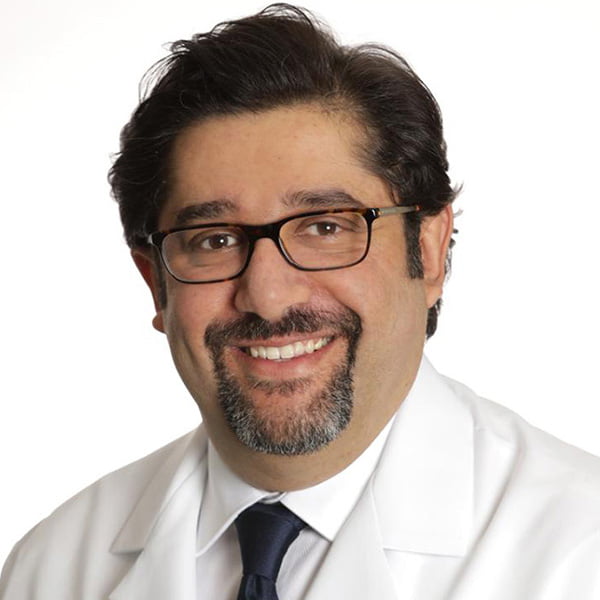
Dr. Hosny is a distinguished physician, educator, and healthcare leader with a commitment to advancing health equity and accessibility in the rapidly evolving landscape of modern healthcare. After completing his residency at St. Luke's Roosevelt Hospital Center, affiliated with Columbia University in New York City, he pursued an Interventional Spine Fellowship at Beth Israel Deaconess Medical Center, part of Harvard Medical School in Boston, MA.
Dr. Hosny has held prominent roles in academic medicine, including serving as an Associate Clinical Professor at New York Medical College and as the Interventional Spine Fellowship Program Director. These positions reflect his dedication to mentoring the next generation of healthcare professionals and advancing the field of interventional spine care.
More About Dr. HosnyThe Spine & Rehab Group
140 NJ-17,
Paramus, NJ 07652
(212) 242-8160
